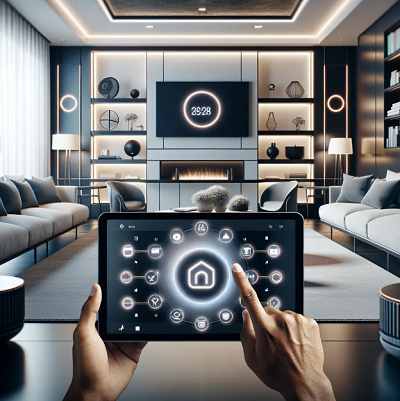In an era where technology evolves at an unprecedented pace, the management of smart devices has become more sophisticated and integral to our daily lives. From the early days of manually configuring each device to today’s automated systems, the journey of smart device management reflects our relentless pursuit of efficiency and convenience. This blog explores the latest trends in managing your smart devices, highlighting how these advancements can transform your interaction with technology.
Introduction: The Evolution of Smart Device Management
The evolution of smart device management is a testament to technological innovation. Initially, managing smart devices was a cumbersome process that required individual attention and manual updates. However, as technology advanced, so did the methods of managing these devices. The importance of staying updated with the latest trends in smart device management cannot be overstated, as it directly impacts the efficiency, security, and convenience of our digital lives.
Embracing AI for Enhanced Automation
Artificial Intelligence (AI) has revolutionized many aspects of our lives, and smart device management is no exception. AI is now being integrated into smart device management for predictive maintenance and automated troubleshooting, significantly reducing the need for human intervention. AI-driven tools can anticipate issues before they become problematic, ensuring that devices operate smoothly. Examples of such tools include AI-powered security cameras that can differentiate between routine movements and potential threats, and smart thermostats that learn your preferences and adjust settings accordingly.
The Rise of Unified Platforms
As the number of smart devices in our homes and workplaces grows, the need for unified platforms to manage these devices across different ecosystems has become apparent. These platforms offer a single dashboard for monitoring, updating, and troubleshooting a wide range of devices, regardless of the manufacturer. The advantages of using a single platform include simplified management, improved efficiency, and a better overall understanding of the smart ecosystem.
Prioritizing Security in the IoT Landscape
With the increasing number of connected devices, security has become a paramount concern. The focus on security measures to protect smart devices from cyber threats has intensified. Innovations in encryption, authentication, and real-time monitoring are being developed to safeguard devices and data against unauthorized access. Manufacturers and developers are continuously working on enhancing the security features of their devices and management platforms to ensure user privacy and data protection.
The Integration of Voice Control and Natural Language Processing
Voice control and natural language processing (NLP) are making smart device management more intuitive and user-friendly. By allowing users to interact with their devices using natural language, these technologies are enhancing accessibility and convenience. Voice-activated management systems, such as virtual assistants, enable users to control their devices without physical interaction, making technology more accessible to people with mobility or visual impairments.
Sustainable Smart Device Management
Sustainability is becoming a critical aspect of smart device management. Manufacturers and software developers are focusing on creating energy-efficient operations and extending device lifespans to reduce environmental impact. This trend towards sustainability not only helps in conserving energy but also in reducing electronic waste, contributing to a greener planet.
Looking Ahead: The Future of Smart Device Management
The future of smart device management looks promising, with emerging technologies like 5G, edge computing, and blockchain poised to redefine how we interact with our devices. These advancements could lead to even more efficient, secure, and user-friendly management systems. However, they also present potential challenges, such as the need for robust security measures and the complexity of managing increasingly interconnected devices.
By exploring these latest trends, readers can gain insights into how smart device management is evolving and how they can leverage these advancements to better manage their smart devices. As we navigate the future, staying informed and adapting to these trends will be crucial in maximizing the benefits of our smart ecosystems.
